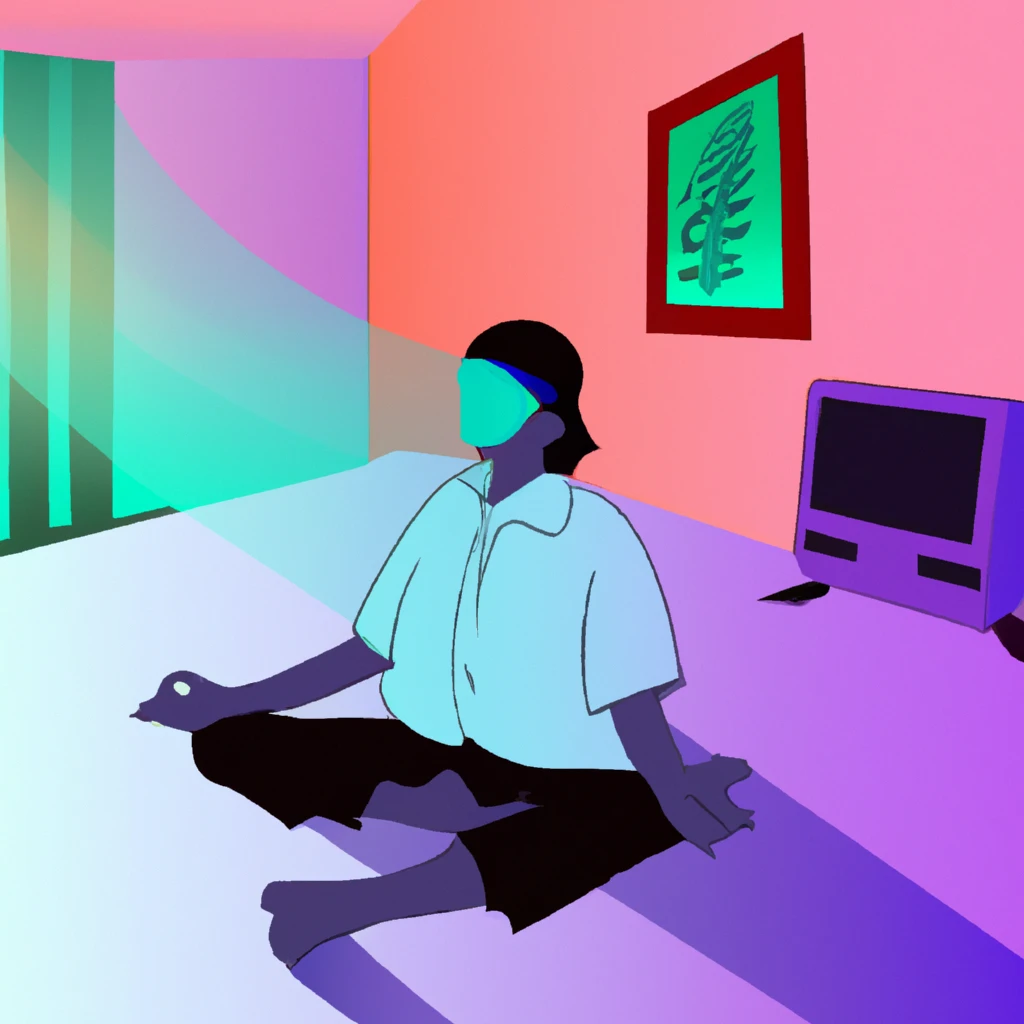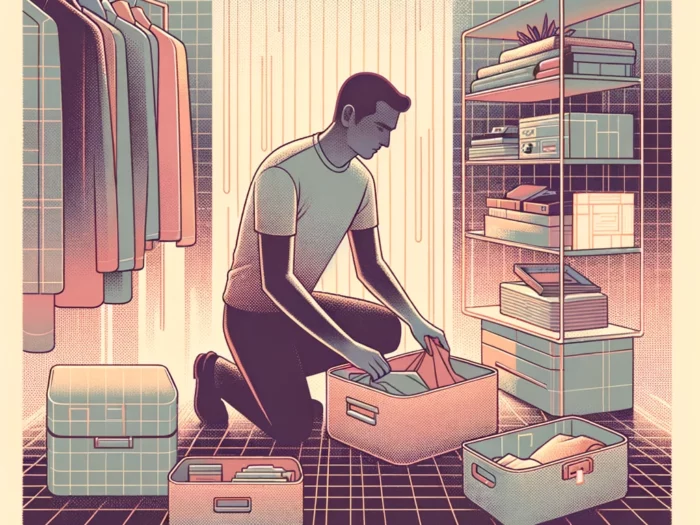Sometimes life gets busy. When life gets busy we often overlook a basic essential: breathing. We go on autopilot and our breath becomes shallow. It’s better to have focused breathing: Inhale. Exhale. Repeat. Relax.
Have you ever listened to the rhythm of the ocean? Intentionally listened? When we listen to the swoosh and sway of the ocean waves it relaxes us. Our own breath can have the same effect, relieving stress.
First, we need to remove all the clutter, both physical and emotional. Let go of the excess. Once we’ve created a clean space, we are ready to focus on breathing. Choose a quiet and comfortable space. Inhale. Exhale. Repeat. Relax.
Breathe in, Breathe out: The Simple Technique to Reduce Stress
Let me tell you a little secret – stress is an inevitable part of our lives. Whether it’s due to work, relationships or just the hustle and bustle of life, we all encounter stress at some point. But here’s the good news; I’ve discovered a simple, yet effective technique to reduce this often-overwhelming feeling – breathing. Yes, you read that right. The average person takes about 20,000 breaths a day, and most of us don’t even think about it. That’s a lot of untapped potential just hanging around, waiting to be utilized. All we need to do is tune into this commonplace activity, and we can use it as a tool to ride through the waves of stress. In an age of expensive techniques and quick fixes, it might seem too good to be true, but trust me, breathing is a potent ally when it comes to quelling stress.
Now, when I say ‘breathing’, I’m not just talking about haphazard or mindless inhales and exhales. There’s a particular type of breathing that’s incredibly effective for stress reduction. The technique involves deeply inhaling, holding the breath, and then slowly exhaling. The ancients called this pranayama or ‘life force control’. This might sound a bit fancy, but it’s surprisingly easy to incorporate into your daily routine.
Take a moment, please. Notice how you’re breathing right now. Is it shallow and rapid or deep and slow? Most of the time, we operate on autopilot mode, with shallow, quick breaths that merely skim the surface of our full breathing capacity. Stress tends to exacerbate this pattern, acting as a vicious cycle. What I’m suggesting is to switch gears: to shift to mindful, deep, slow breaths that dive deep into the belly. Just this little shift marks the first steps towards stress reduction.
Give it a try now. Inhale deeply, hold the breath, exhale slowly, and see how you feel. Repeat this process a few more times, and you might begin to notice a sense of calm washing over you. It’s essentially you saying to stress, “Breathe in, Breathe out, You’re not going to overwhelm me. I’ve got this.”
Take long breaths through your nose. Release your breath through your mouth. As you continue to focus on your breath you will become more calm. Breathe deeply and consistently. Focused breathing has many health benefits.
This form of mindful, intentional breathing is the cornerstone of many meditation practices, noted for its ability to cultivate stillness and clarity. And it makes sense, because when you focus on the breath, you are pulling away from those stress-triggering thoughts and placing your attention on the calming rhythm of your own life force.
So, my friends, as we go about our lives and encounter stress, let’s remember this simple yet powerful tool we carry around with us: our breath. It’s always there, available at any moment as a refuge from the storms of stress. It might be a struggle at first to break old habits, but little by little, by fostering an awareness of how we breathe, we can gradually shift towards a more peaceful and stress-free life. Remember, it’s as simple as breathing in, and breathing out.
Inhale, Exhale, Relax, Repeat – Why?
- Reduces stress: Focused breathing calms us. We often go through our day on autopilot. We forget to breathe deeply. Our mental and physical health suffers. It’s easy to forget to breathe. Make a point to consciously feel your breath each day. You will be much more relaxed. Inhale. Exhale. Repeat. Relax.
- Increases energy: Deep breathing allows more oxygen to enter our lungs and bloodstream. Oxygen creates energy. Body and mind will be reenergized after a short session of focused breathing. Try it. Inhale. Exhale. Repeat. Relax.
- Aids digestion: If you suffer from indigestion, breathing is one of the simplest cures. Deep breathing after meals will help you digest your food. Your stomach will thank you. Inhale. Exhale. Repeat. Relax.
- Creates happiness: When we are calm we are at peace. When we are at peace our happiness level increases. When we are happy we are more calm. Do you see a pattern here? Focused breathing creates happiness. Be happy. Inhale. Exhale. Repeat. Relax.
- Stimulates creativity: I’m a writer. I feel that I’m much more productive when both my space and head are clear. Deep breathing helps clear the mind. Oxygen stimulates brain cells and fosters creativity. Inhale. Exhale. Repeat. Relax.
In the midst of all the rush, remember to stop and breathe.
Breathing for Wellness: The Science Behind Stress Relief
I still vividly remember the day I was first introduced to the concept that our breath could have such a profound impact on our emotional well-being. I was a law school student, swamped in volumes of cases to dissect, and stress seemed to be my closest friend – a tireless companion from sunrise to sunset. One day, a therapist shared with me: “Just breathe“. It felt absurd – “I’ve been breathing all my life,” I thought, “why isn’t this magical stress relief coming my way?”. That’s when I found out it’s not just about breathing. It’s about how you breathe. Let’s dive a little into the science behind it, shall we?
First off, our breath is intrinsically connected to our central nervous system. When we are under stress, our body responds by triggering the ‘fight or flight’ response which leads to rapid, shallow breathing, and at times, even hyperventilation, all of which can increase anxiety and stress. But here’s the game-changer – by consciously changing the way we breathe, we can override this response.
Change your breath, change your mood. It’s as simple and powerful as that.
Research shows that practicing slow, deep breaths triggers a relaxation response — a physiological response opposite to the stress response. This relaxation response slows your heart rate, lowers blood pressure, and helps bring the body back to a balanced state, thereby reducing the effects of stress.
When we engage in deep breathing, we shift our brain’s activity from the sympathetic nervous system, which is responsible for the fight or flight response, to the parasympathetic nervous system, which is responsible for relaxation. It’s like switching from a high-volume, adrenaline-fueled rock concerto to a calm, tranquil beach setting, a transformation right inside your body!
In a 2017 study, researchers found that controlled breathing conditions the body’s reaction to natural stimuli, basically helping to rewire brain circuitry dictating emotional responses. That’s why after a few minutes of slow, deep breathing, you may notice that you feel calmer, more composed, and even a little sleepy — all signs your nervous system has made the shift towards relaxation.
There’s plenty of scientific evidence supporting the benefits of controlled breathing. It’s not just for those of us in the throes of stress or anxiety; it can be for everyone leading a life of constant hustle and bustle. It’s our very own built-in stress-relief mechanism. And the beautiful part of it? It requires nothing but a quiet moment and the willingness to allow the breath to lead you back home to yourself.
Inhale, Exhale, Relax, Repeat – my story
I know it’s a challenge to focus on breathing. I’m a single dad to a nine-year-old girl. Annie is a good kid, but she can be demanding. She can also overreact and get emotional. That creates stress and chaos. I have to remember to take a few deep breaths.
Being a single parent is filled with busyness. Just today:
- Get up
- Do dishes
- Do laundry
- Annie up
- Breakfast
- Annie to school
- To work
- Teach classes
- Grading
- Annie from school
- Play with dog
- Annie’s homework
- Annie’s piano practice
- Karate
- Dinner
- Halloween Dance
- Annie to bed
- Breathe
Can you relate? Some days are even busier. That’s why it’s imperative that we stop. Take time to breathe. We need to stay focused. We need to keep calm. We need to breathe.
Remember to start with a quiet, clean space. Imagine your breath like the waves of the ocean.
Take the 10 Step Challenge with me. Live simple. Find peace.









